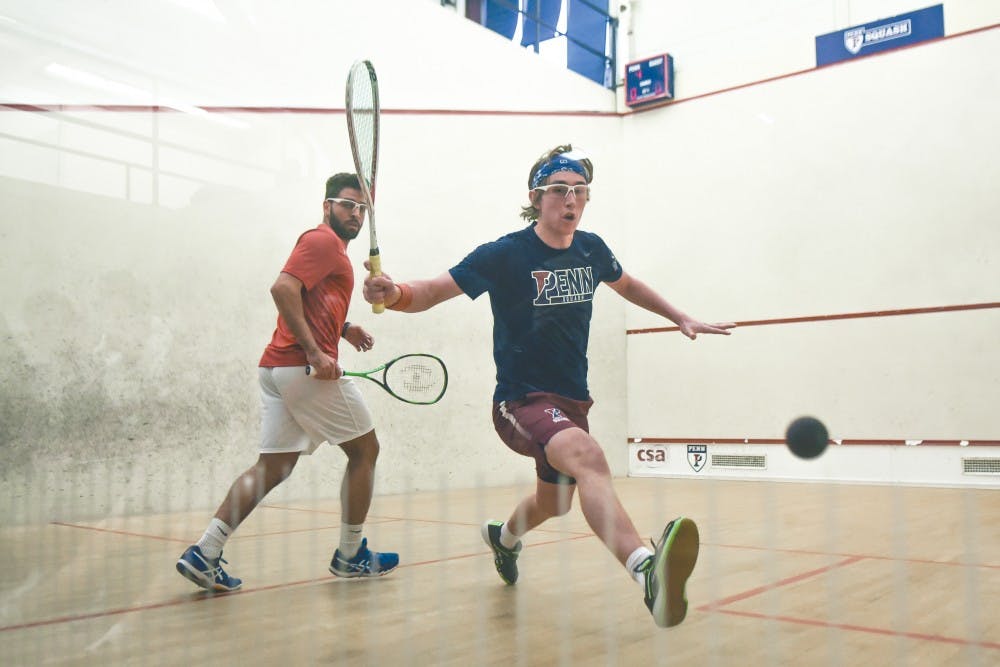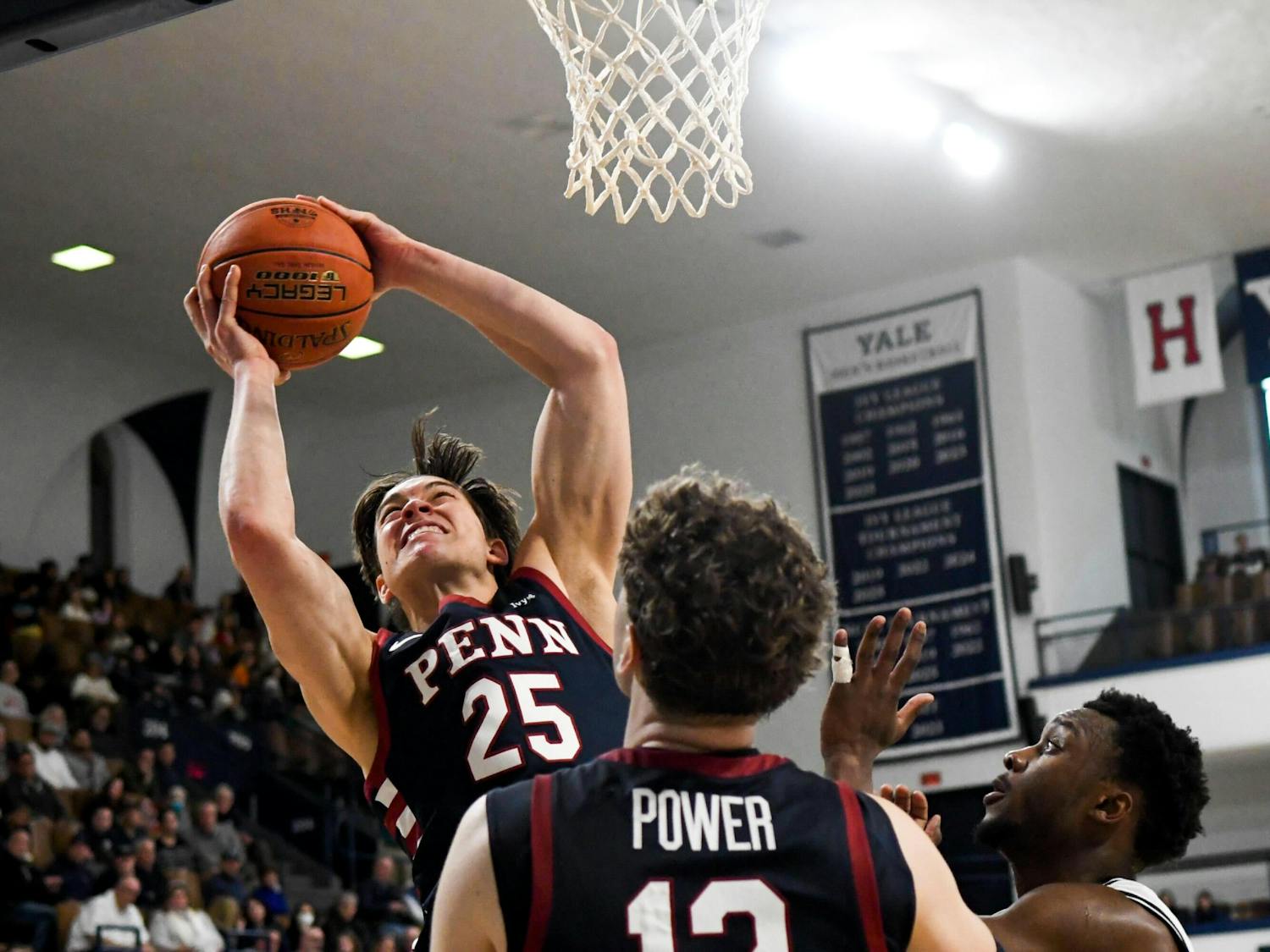Andrew Douglas went to work this summer, and he struck gold.
The Penn men’s squash junior earned a spot on Team USA for the 2019 Pan American Games in Lima, Peru, where he won the gold medal-clinching match to give the United States its first-ever men’s and women’s sweep of the gold medals.
After his Team USA teammates Chris Hanson and Todd Harrity split their championship-round matches against Colombia, Douglas defeated Andrés Felipe Herrera, 11-4, 6-11, 11-6, 11-8, to clinch the top place on the podium.
“It came down to one match. It was win-or-go-home, and it was such an incredible feeling just to win,” Douglas said. “That last day was really the best moment I’ve had, just the most rewarding, really validating moment I’ve had, in sports and in life, really.”
Douglas’ clutch performance didn’t exactly come out of nowhere. As the only college player on the men’s squad, he had already faced stiff competition merely to make Team USA, and in the semifinal round against top-seeded Mexico, he rebounded from a 2-1 deficit to upset world No. 35 Alfredo Avila.
On top of that, having spent his 2018-19 sophomore season leading Penn to its first No. 1 College Squash Association ranking, finishing as the No. 3-ranked CSA player in the country, and earning first team All-American recognition, Douglas was already a seasoned player when summer arrived.
“I’m so happy for him, and I’m so proud of him,” Penn men's squash coach Gilly Lane said. “Andrew is an incredible student-athlete. He’s one of the hardest workers I’ve ever been around. His passion for the game is second to none, and he has the opportunity to go down in the history books as one of the best players — if not the best — that Penn’s ever had.”
Lane himself was an assistant coach for Team USA at the 2015 Pan-Am Games in Toronto, where the United States earned the bronze medal. He recognized Douglas’ prowess and potential when he recruited the two-time junior national champion, but it wasn’t until he got to see his work ethic and dedication on campus that Lane could see Douglas finding success at the highest level so early in his career.
RELATED:
Penn men's squash wins two of three matches, places third at CSA Team Championships
Better Together: Penn squash boasts No. 1 ranking, hot starts for both teams
While Lane raves about Douglas’ natural ability and commitment to self-improvement, the junior hardly thinks he was alone in becoming a gold medal winner. He spent about three weeks during the summer in Philadelphia, working with Lane at Penn and getting treatment ahead of the tournament.
“[Gilly]’s played such a massive role in getting me to that level,” Douglas said. “Without him opening my eyes to different parts of the game and just kind of being there 100%, especially in the summer, when a lot of college coaches might not be there, that’s why he’s, in my opinion, the best.”
After working his way to the pinnacle of his sport after just two college seasons, Douglas had to come back to earth, especially considering that he has his junior and senior years left to compete for the Quakers.
“It was the biggest high I’ve felt in anything, really,” Douglas said. “I think that that feeling is one that, once you’ve touched it a bit, once I’ve gotten that, it’d be tough to walk away. The minute you come down from it, you’re like, ‘How do I get back there?’”
Lane knows what Douglas is feeling, but he’s also aware of the upcoming season. Although Douglas will be a junior captain and five seniors have departed, expectations for him and the team aren’t changing any time soon: maintaining and building on excellence is a daily responsibility.
For now, though, Douglas is comfortable — “keeping [his] options open” — having relieved himself of any doubts about his ability or the time and effort he has put into developing that skill.









